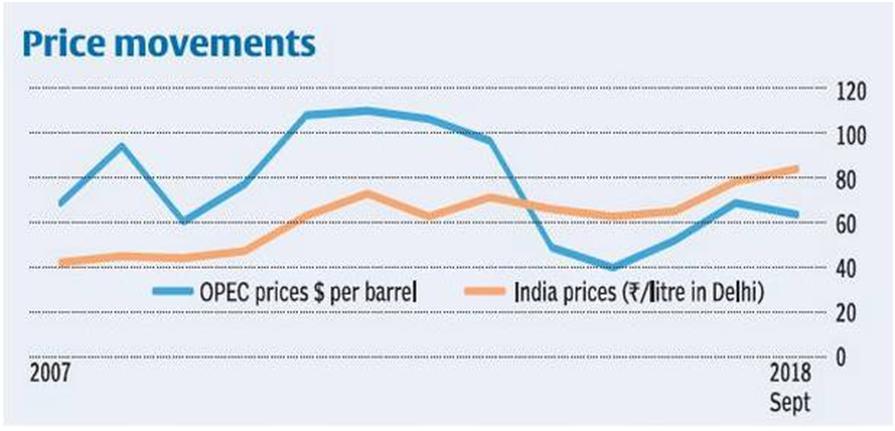7667766266
enquiry@shankarias.in
What is the issue?
Petroleum prices are rising and there are considerable demands to the centre to reduce its excise duties on the product.
How the sector was deregulated?
What was the consequence?

What is the present scenario?
Should the states be held responsible?

What should the centre do?
Source: Business Line
Sai Krishna Durshetty 7 years
Sir/Madam, There is a photograph related to ZIKA VIRUS in this file, please go through it and edit the file,Thank you.

IAS Parliament 7 years
Thank you for bringing it to our notice. Keep Following.